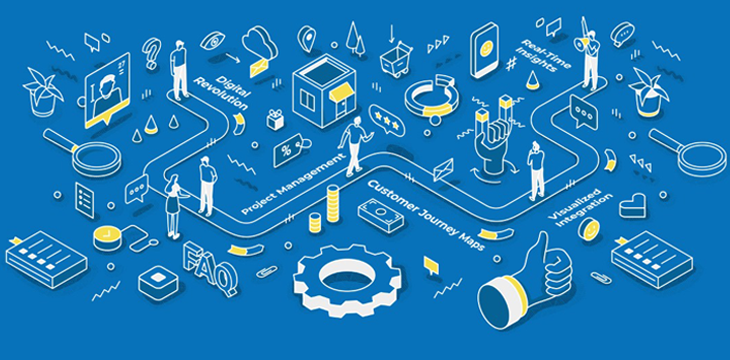In today’s data-driven world, access to information is no longer a competitive edge. The sea of data surrounding businesses today is vast and relentless. Every click, swipe, purchase, and sensor reading contributes to a tidal wave of information, potentially holding the key to success. So, while you might have a vast ocean of data at your fingertips, the real question is: are you actively navigating its depths, or helplessly caught in its undertow?
Many businesses struggle to truly harness the power of their big data. Imagine manufacturers drowning in sales figures, healthcare providers overwhelmed by HCP records, or oil companies clinging blindly to outdated maintenance & compliance schedules at fuel stations. In these turbulent waters, valuable insights often get lost, leaving organizations adrift in a sea of unutilized potential.
This is where generative AI, the rising tide of intelligent automation, emerges as a life preserver. By weaving machine learning, natural language processing, and even creative flair into its fabric, generative AI can transform your data from a chaotic storm into a navigable ocean teeming with actionable intelligence.
The Role of Generative AI in FMCG Industry
Extract Consumer Purchasing Patterns
The FMCG sector, characterized by its vast consumer base and rapid turnover of products, generates enormous amounts of data daily. This data, ranging from consumer purchasing patterns to supply chain logistics, holds immense potential for companies willing to delve into its depths.
For instance, consider a global confectionery company that uses big data to analyze consumer preferences across different regions. By identifying trending flavours and packaging preferences, a company can introduce targeted product variations, resulting in a significant boost in market share.
Optimizing Raw Material Procurement
Similarly, big data aids in supply chain optimization. An FMCG giant that uses predictive analytics to foresee demand surges in certain products would be enabled to streamline their inventory and reduce product expiries. That will enhance the sustainability efforts and profitability.
Perishable goods, which are common in the FMCG sector, have a limited shelf life. Predictive analytics allows a company to align its supply chain processes with the expected shelf life of products, ensuring that they reach the consumers while within their best consumption period.
Create Advertising & Marketing Campaigns
Generative AI takes big data analysis a step further. It not only interprets existing data but also generates new data models to simulate various market scenarios. This ability is particularly beneficial in the FMCG sector for testing marketing campaigns, predicting consumer behaviour, and optimizing product distribution.
For example, AI can simulate the impact of a new advertising campaign on sales across different demographics, providing FMCG companies with valuable insights to tailor their marketing strategies effectively.
Conclusion
The true power of big data lies in how it’s used. With the adoption of generative AI, FMCG companies can transform raw data into actionable insights. This transformation is key to staying ahead in the highly competitive and ever-evolving FMCG market.
The data deluge isn’t just a metaphorical storm anymore – it’s a constant downpour shaping the business landscape. Companies that stand idly by, hoping for an umbrella, will find themselves swept away. But for those who embrace the flood, generative AI becomes the ark: navigating the turbulent waters and steering towards a data-driven destiny.
References:
https://blog.google/products/ads-commerce/get-creative-with-generative-ai-in-performance-max/
https://www.linkedin.com/pulse/benefits-best-practices-procurement-data-analysis-precoro/











